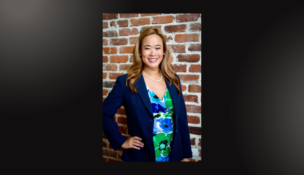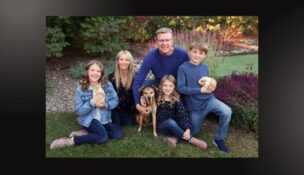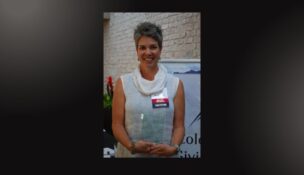Good company: New Molson Coors CEO Mark Hunter knows his craft
Striking a balance between history and innovation
Gigi Sukin //September 24, 2015//


Good company: New Molson Coors CEO Mark Hunter knows his craft
Striking a balance between history and innovation
Gigi Sukin //September 24, 2015//
At the start of 2015, a new captain took the helm of Molson Coors Brewing Co. Mark Hunter replaced former CEO Peter Swinburn and has been given no guarantee of smooth waters, as the company faces “headwinds” from craft competitors, fickle consumers and an evolving industry. Still, 52-year-old Hunter, who has been dedicated to the beer business for more than a quarter-century, pairs his Scottish accent with a steady demeanor and confidence about Coors.
New to Colorado – home to many craft breweries – Hunter says today more people are talking about beer styles, flavors and colors than he can ever remember, which he believes to be good for the business as a whole. Molson Coors is the seventh-largest brewer by volume in the world. With about 9,000 employees – not including the MillerCoors joint venture – the global beverage behemoth is attempting to strike a balance between its history and innovation to remain relevant and “delight the world’s beer drinkers.”
CB: What happened when you found out you’d gotten this gig?
We took a brief interlude for a beer (laughing).
Everybody in our business has a personal development plan and we take succession planning very seriously. It was relatively transparent. As Peter Swinburn was getting ready for retirement, a couple people started to emerge as potential successor contenders. So that process came to a head in the middle of last year.
Pete (Coors) and Andrew Molson asked if I’d be prepared to step up, and then through the balance of last year, in the third quarter, I had a chance for a hand over from Peter (Swinburn), and then he really stepped back and I started to run the business. So when it became official, I hit the ground running from January.
You started your career in sales – working for Hallmark Cards and Bulmers, an independent cider company. How has this impacted the way you approach business?
We are a branding business. Probably the most important job in our business is the job that our front-line sales teams do, because nothing happens in our business until somebody sells a case of beer, and I think that connection point, where your retailers and your consumers or shoppers collide, is really where all of the value is.
Compare and contrast your multi-cultural business experiences.
Whether it’s the UK, Canada, the U.S. or across Central Europe, every culture has its strengths and its quirkiness. So in Central and Eastern Europe, there’s a big focus on operational excellence, great execution. In North America, it’s far more entrepreneurial. Beyond that, everything is a nuance. It’s all part of learning and having a sensitivity to people.
I’ve been in the beer business for a long time now and I start from a position of where sharing a beer with friends is one of life’s simple pleasures. But what we have attempted to do with Molson Coors is make sure everybody who’s part of the Molson Coors family has a sense of what our purpose is as an organization, and coming into the role, I’ve attempted with my team to really sharpen this up.
Coors is a massive company. Talk about the strategy behind the mergers and acquisitions.
I think as any business grows, the challenge is that you don’t lose your DNA — what makes you unique and distinctive as a business. As our business has grown in the last decade and a half in particular, it’s been really important that the values we have, the focus on people, the focus on brand-building remains true. Bigness for bigness sake isn’t a strategy. Our business has grown because we want to build out our geographic footprint and we want to make our brands more available to more people around the world and we want to build out the breadth and depth of our portfolio.
How does Molson Coors approach sustainability?
Wherever we are, we want to make sure we’re leaving the right kind of mark on our communities. I think we’ve been the top beverage company within the Dow Jones Sustainability Index, which is particularly important to our supply chain team.
I read a really interesting fact in Beverage World magazine, and there was an article talking about the challenge of water usage in California. Someone was making the correction that small local companies are seen as great custodians of the local environment. Well, we have a big brewery in California. When we make beer, we use about 3.5 barrels of water to make one barrel of beer; that’s considered world class. And the journalist writing this article talked to the fact that some of the small local breweries are using 23 barrels of water to make one barrel of beer. So the notion that a large company that’s really focused on sustainability can drive for great quality and efficiency sets a benchmark for the rest of the industry.
There’s a lot of chatter about the craft beer industry steadily growing into traditional beer turf.
If you take a step back, within the context of alcohol and most of the markets we operate in, beer is still the biggest part of alcohol; so that’s a good place to start. And within beer, the mainstream part is still by far the biggest part of the beer category, so that’s really the economic engine for the beer industry.
We have continued to participate in what’s defined as the craft beer wave, but we helped to shape that, too, 20 years ago when Blue Moon was created here. In Colorado, our original craft Rocky Mountain beer, is Coors Banquet. It is only brewed in Golden, Colorado, with the local water and local barley. I want us to have a portfolio that meets all drinker preferences. Craft is an important part of that, but we start from the fact that the craft of brewing is really at the heart of our business. Beyond that, we want to ensure that we’ve got a portfolio that is evolving as drinkers and retailers evolve.
Any memorable moments since taking the CEO role?
I was up in Golden about two months ago for a couple meetings and I came down in the elevator and Bill Coors was coming into the building. Bill was in a wheelchair; he’s 99. And I reintroduced myself since I hadn’t seen him for about three years and I said, ‘What are you here to do, Bill?’ And he said, ‘Well, I’m here for the beer tasting. Why don’t you join us?’ So I went back up in the elevator, and Pete (Coors) was in the building as well. So Pete and Bill were there tasting the beer, and Bill said, ‘I can’t see much these days, I can’t hear much these days, they don’t pay me much these days, but I know if the beer is good.’
So there you have Bill Coors and Pete both with their nose in the glass and the brewers all waiting to hear what Bill had to say. So when you talk about the craft of brewing, that for me was a reality of the craft of brewing.
How’s the transition to Denver been so far?
We’ve enjoyed the city. We both ski, so I look forward to doing more of that and the outdoors in general are great here.
My kids are back in the UK. My daughter graduated last year. She’s 23 and she’s in the drinks business, but not the beer business. And she’s just moved to London. And my son will be graduating in summer 2016. So they’re in the UK, and my wife and I are here. Denver – people have been very welcoming and hospitable. Although everybody told me there’d be 300 days of blue skies; I’ve seen as much rain in Denver this year as I have in Europe. Everybody tells me that’s unusual, but I don’t know.

























